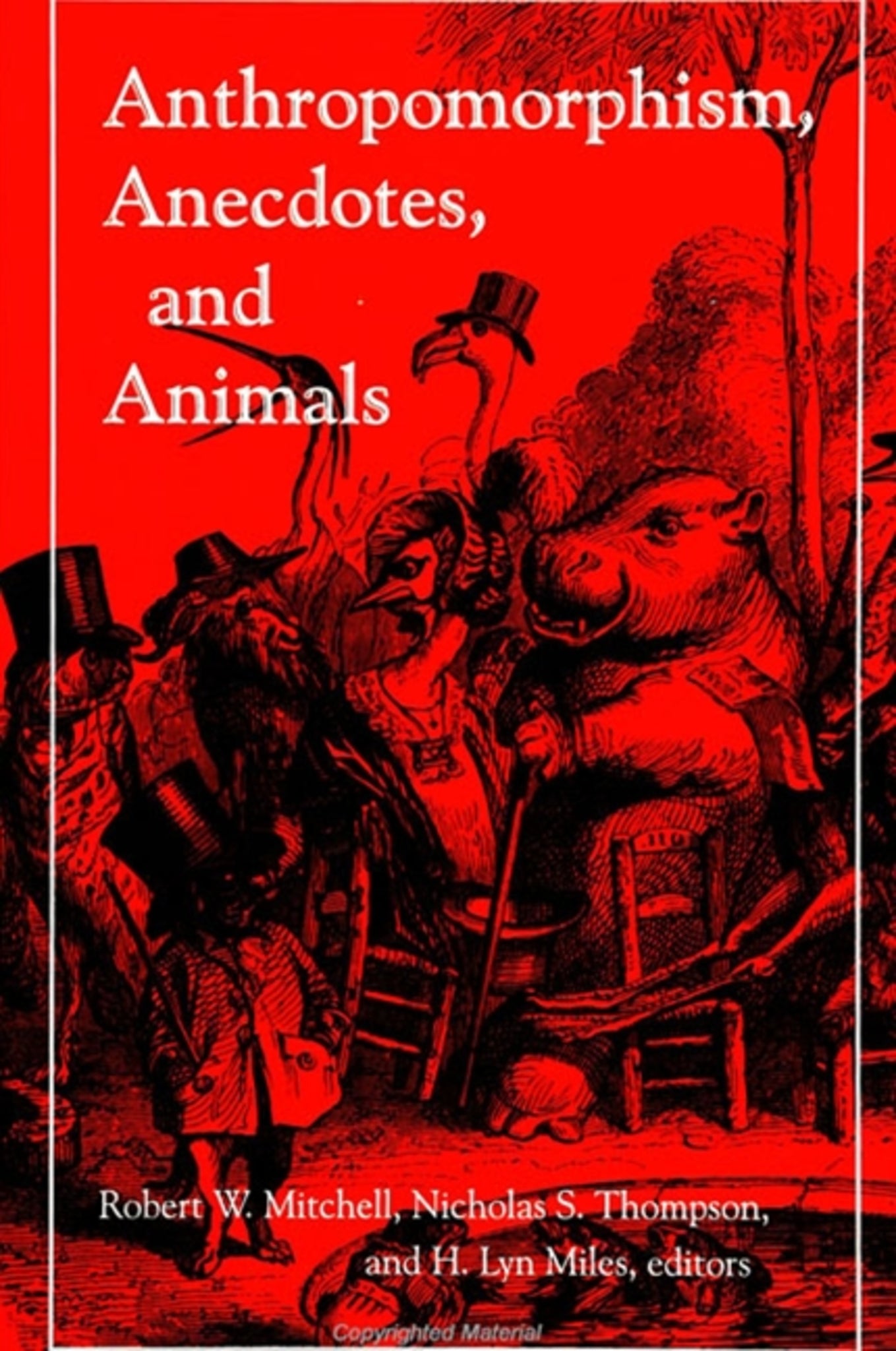We're sorry. An error has occurred
Please cancel or retry.
Anthropomorphism, Anecdotes, and Animals

Some error occured while loading the Quick View. Please close the Quick View and try reloading the page.
Couldn't load pickup availability
- Format:
-
14 November 1996

Evaluates the significance and usefulness of anthropomorphism for the scientific understanding of animals by presenting diverse ideas from historians, philosophers, anthropologists, primatologists, psychologists, behaviorists, and ethologists.
People commonly think that animals are psychologically like themselves (anthropomorphism), and describe what animals do in narratives (anecdotes) that support these psychological interpretations. This is the first book to evaluate the significance and usefulness of the practices of anthropomorphism and anecdotalism for understanding animals. Diverse perspectives are presented in thoughtful, critical essays by historians, philosophers, anthropologists, psychologists, behaviorists, biologists, primatologists, and ethologists. The nature of anthropomorphism and anecdotal analysis is examined; social, cultural, and historical attitudes toward them are presented; and scientific attitudes are appraised. Authors provide fascinating in-depth descriptions and analyses of diverse species of animals, including octopi, great apes, monkeys, dogs, sea lions, and, of course, human beings. Concerns about, and proposals for, evaluations of a variety of psychological aspects of animals are discussed, including mental state attribution, intentionality, cognition, consciousness, self-consciousness, and language.


"…a thoughtful work which can provide valuable insights for the non-scientist." — H-Net Reviews (H-Nilas)
"It is rare when opponents of anthropomorphism can be brought to offer explicit arguments for their stance yet, several have done so here. Just bringing the two sides together for a debate makes this anthology extremely valuable. Another tremendously valuable feature is the enormous breadth of the sub-topics covered, e.g., the articles that try to explain the nature and function of anthropomorphism, as opposed to the related topic of whether it is valid as a way of thinking about animals and explaining their behavior.
"The topic is very significant, both because of the controversy in fields that are devoted to explaining animal behavior and because of the wide-ranging ramifications going beyond animal mentality to the question of how we understand human behavior and mentality. Thus, I think it is also relevant to philosophy of mind which, until recently, treated as peripheral the question of animal mentality." — John Andrew Fisher, University of Colorado, Boulder
"What I find compelling is that all of the essays have raised important challenges to the way we view ourselves and other species, and many of them have subsequently attempted to identify alternative approaches. This collection is intellectual in that the authors have attempted to explore their own belief systems, as well as challenged readers to do likewise." — Jo Liska, University of Colorado, Denver
List of Illustrations
Foreword
Frans B. M. de Waal
Acknowledgments
PART I. ATTITUDES, HISTORY, AND CULTURE
1. Taking Anthropomorphism and Anecdotes Seriously
Robert W. Mitchell, Nicholas S. Thompson, and H. Lyn Miles
2. Dogs, Darwinism, and English Sensibilities
Elizabeth Knoll
3. Why Anthropomorphism Is Not Metaphor: Crossing Concepts and Cultures in Animal Behavior Studies
Pamela J. Asquith
PART II. THE NATURE OF ANTHROPOMORPHISM
4. Amorphism, Mechanomorphism, and Anthropomorphism
Emanuela Cenami Spada
5. Anthropomorphism: A Definition and a Theory
Stewart Elliott Guthrie
6. Why Anthropomorphize? Folk Psychology and Other Stories
Linnda R. Caporael and Cecilia M. Heyes
PART III. ANTHROPOMORPHISM AND MENTAL STATE ATTRIBUTION
7. Anthropomorphism and the Evolution of Social Intelligence: A Comparative Approach
Gordon G. Gallup Jr., Lori Marino, and Timothy J. Eddy
8. Panmorphism
Daniel J. Povinelli
9. Anthropomorphism and Scientific Evidence for Animal Mental States
Hugh Lehman
10. Anthropomorphism in Mother-Infant Interaction: Cultural Imperative or Scientific Acumen?
Robert L. Russell
PART IV. ANECTODES AND ANTHROPOMORPHISM
11. Anecdote, Anthropomorphism, and Animal Behavior
Bernard E. Rollin
12. What's the Use of Anecdotes? Distinguishing Psychological Mechanisms in Primate Tactical Deception
Richard W. Byrne
13. Anthropomorphic Anecdotalism As Method
Robert W. Mitchell
14. A Pragmatic Approach to the Inference of Animal Mind
Paul S. Silverman
PART V. INTENTIONALITY
15. Varieties of Purposive Behavior
Ruth Garrett Millikan
16. Expressions of Mind in Animal Behavior
Colin Beer
PART VI. CONSCIOUSNESS AND SELF-CONSCIOUSNESS
17. Self-Awareness, with Specific References to Coleoid Cephalopods
Martin H. Moynihan
18. Silent Partners? Observations on Some Systematic Relations among Observer Perspective, Theory, and Behavior
Duane Quiatt
19. Common Sense and the Mental Lives of Animals: An Empirical Approach
Harold A. Herzog and Shelley Galvin
20. Amending Tinbergen: A Fifth Aim for Ethology
Gordon M. Burghardt
21. A Phenomenological Approach to the Study of Nonhuman Animals
Kenneth J. Shapiro
22. Anthropomorphism, Anecdotes, and Mirrors
Karyl B. Swartz and Siân Evans
PART VII. COGNITION
23. Cognitive Ethology: Slayers, Skeptics, and Proponenets
Marc Bekoff and Colin Allen
24. Animal Cognition Versus Animal Thinking: The Anthropomorphic Error
Hank Davis
25. Anthropomorphism Is the Null Hypothesis and Recapitulationism Is the Bogeyman in Comparative Developmental Evolutionary Studies
Sue Taylor Parker
PART VIII. LANGUAGE
26. Anthropocentrism and the Study of Animal Language
Judith Kiriazis and Con N. Slobodchikoff
27. Pinnipeds, Porpoises, and Parsimony: Animal Language Research Viewed from a Bottom-up Perspective
Ronald J. Schusterman and Robert C. Gisiner
28. Anthropomorphism, Apes, and Language
H. Lyn Miles
PART IX. COMPARING PERSPECTIVES
29. Anthropomorphism and Anecdotes: A Guide for the Perplexed
Robert W. Mitchell
List of Contributors
References
Indexes



